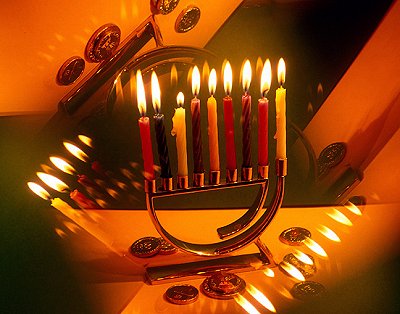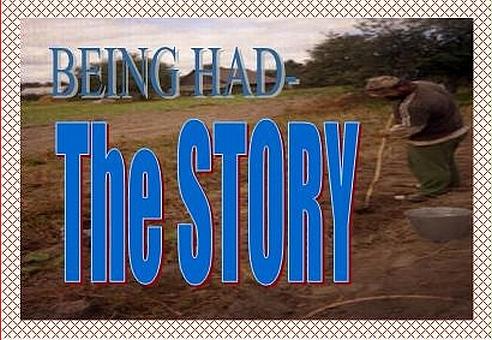Chanukah
I have been website building and I am just not that good at it yet so it is taking forever. I think I am about ten days behind. So, as there is a good chance that I will not get that site up in time for our original and overly ambitious deadline, I thought I should at least make sure I get this out into the world while it is still relevant.
So, I am turning the mike over to our Rabbi, and I will let him do the talking for today. Here is this weeks torah commentary for Chanukah
Commentary by R’ Moishe Fhima
 |
| There is much to learn from the candles of the menorah |
The torah tells us that Joseph the righteous, Yosef Hatzadik, who was already in pharaohs’ dungeon was given an extra two years as a punishment for asking the ministers to mention him in front of pharaoh, the King of Egypt that he we be released from jail. In this week’s reading, pharaoh has had a dream and wished to know its meaning. And when the minister remembered that Joseph had interpreted one of his dreams while he was also in the dungeon, the torah tells us how Joseph was suddenly grabbed from his cell. His clothing was stripped away and new given, he was washed, shaved and other wise made as presentable as possible, and then quickly brought in front of the king. All this happened in a very short amount of time because pharoh was eager to understand the meaning of his dream.
When Joseph finally stood before Pharaoh, pharaoh looked down at him from his throne and explained that he had been recalled to interpret a dream. But Joseph replied to the request “biladai, elokim ya’ane ess cha’olom paroh” (It’s not me; it is G-d who will answer the dream of pharaoh.).
What do we see from this? We see that Joseph Hatzadik, now understood that the real mistake that he had made and the real reason for the punishment that he had received (i.e. being put in jail for two years), was that he had not put his full trust in G-d, and chose rather to rely on people rather than upon G-d himself. And we know this because the first words that he says when he is released are “it is not me; it is only G-d.” And indeed, the minute he had fully understood what he had done, he repented for the mistake and miraculously was immediately saved, even though it was not expected or planned. And then, as a demonstration of how complete his belief now was, even before pharaoh himself, Joseph was bound to say what he needed to say: It is not me, it is G-d
The story of Chanukah was the same. True, we all know about the miracle of Chanukah, but we can forget that 10’s of thousands of Jews were killed in the wars of Chanukah in addition to how the temple in Jerusalem was contaminated by our enemies. However, there were a few people (the Maccabeans) who had not yet been killed or turned and they, as Joseph Hatzadik, realized why they were being punished. They understood that the real reason why they were suffering was that they had forgotten about the almighty Hashem. And after realizing this they said: “Mi La Hashem eilai!” (Who wants to serve G-d, come to us!) And through their understanding and repentance G-d made miracles for them and they very quickly managed to fight back and eventually win the war, saving many more lives and reigniting the faith in Hashem (Almighty) in the process.
So this is an important lesson for us and it comes both from this week’s portion and from the story of Chanukah. When something goes wrong for a person, instead of trying to fix it using one’s own strength and thinking that the problem is something natural, perhaps we should also ask why G-d wanted this problem to come to us and what is expected from us to do. As soon as we understand the real reason behind the problem, we then can amend our thoughts and ways and then G-d will be there to save us.
And yes, if one has repented properly the problem can then evaporate in the spur of the moment, just as it happened when the Jews left Egypt. The very moment the decree of Jewish slavery was over, though it had been going on for two hundred and ten years, the Jews were immediately sent out of Egypt even though it was in middle of the night. And thusly we know that just as when G-d will decide that the time for Moshiach has come, the revelation will also happen at a spur of the moment
One of the laws of Chanukah concerning the lighting of the candles is that one should not do any work for the first half an hour while the candles are burning and very often people think to themselves how can one wisely use this half an hour which adds up to four hours over the whole of Chanukah.
Well, one suggestion might be the following: King Solomon writes in (parables 20: 27) Ner Hashem Nishamat Adam Chapes Kol Chadrei Baten (The candle of G-d is the soul of a person seek in all the compartments of the stomach). The soul here is compared to a candle (ner), and when you meditate on this thought, you begin to see that there are many different things that a candle and the soul have in common.
Here are eight points, one for each night of Chanukah to reflect upon during those brief moments while the Chanukah candles are burning.
1. Just like the flame of a candle insists upon rising, also a person’s soul should desire to go upward, to go forward, and to reach greater heights.
2. Just as one lit candle can light a thousand other candles without losing even a drop of its own flame, so one can help many other people without losing from oneself anything at all.
3. Just as a candle when lit can push away the darkness, so too can a mitzvah light a righteous path and push away the darkness that clouds peoples hearts. And as darkness is the way we describe the desire to do sins, one mitzvah can do much to push away a lot of evil.
4. Just as the number of candles increase each day: One on the first night, two on the second, and so on, so we should not be satisfied with doing but one mitzvah a day; rather we should want to do more and more mitvot each and every day.
5. Just as the law states that we are not allowed to receive any benefit from the candles themselves, (you are not even allowed to turn off the lights to enjoy the candle light), one may not use his soul to do bad things. Of course yearning is part of the character of the soul however; one should use the yearning only to do good things i.e. the will of G-D.
6. Just as using pure olive oil is the best way to light the flame of the menorah, so we must only look to use the purest of humanity, the purity of the Torah to light the flame of our souls.
7. Just as we light the candles next to the window in order that people should see them similarly one should not hide his soul and be over humble by not helping others; rather one should want to help others with one’s soul.
8. Just as a flame is not a solid substance. Should you want to, you can press it (with only the danger of a burnt finger) in any direction you wish. So too the soul even though it is not a tangible organ (as a heart or an arm or your foot), we still know it is there because we can feel the warmth that it radiates.
So here are eight points, one for each day of Chanukah. But now we must ask how do we ignite our flame. Of course when we are speaking of lighting candles, there is nothing difficult about it: You strike the match and you light the candle. The bigger question is how to we ignite our souls? The torah says “Ki ner mitvah, v’torah oir.” (A candle is the mitzvah and the torah is the light.). And so, the way of lighting one soul is by doing the mitzvoth (the will of G-D) and the longer the candle i.e. the more mitzvoth one does the longer the flame will burn.
So the next time you light your Chanukah menorahs, perhaps give a moment to think about some of these points. Let us allow the lessons of the lights teach us what we need to learn, and let’s do what our souls need do to keep warm. And while we are at it, why not continue on even after the last of the Chanukah candles have gone out, and by doing mitzvahs all the way to the next Chanukah and in this way Chanukah will be us throughout the year.
More soon...






















